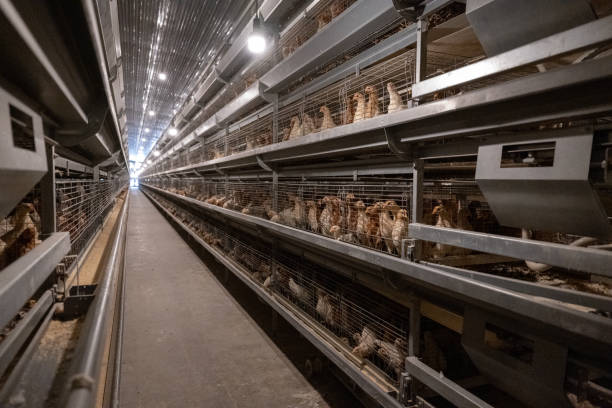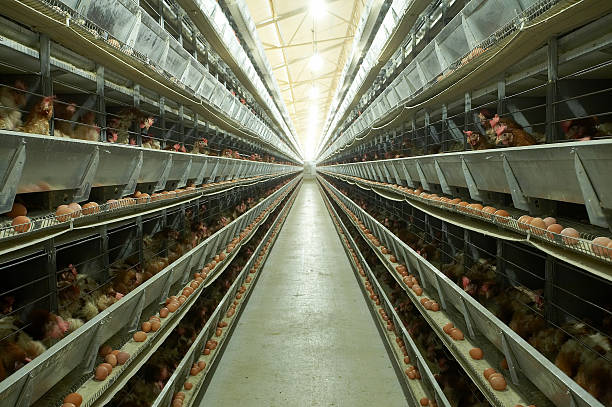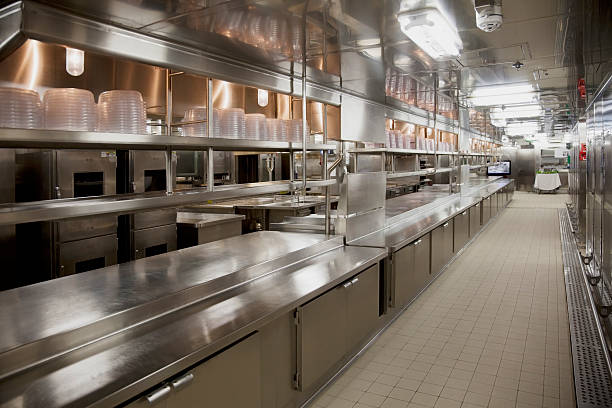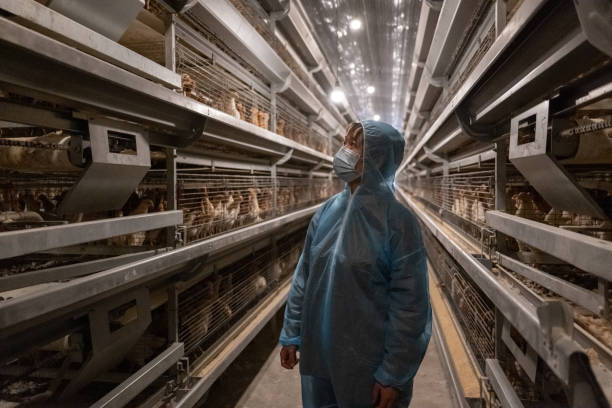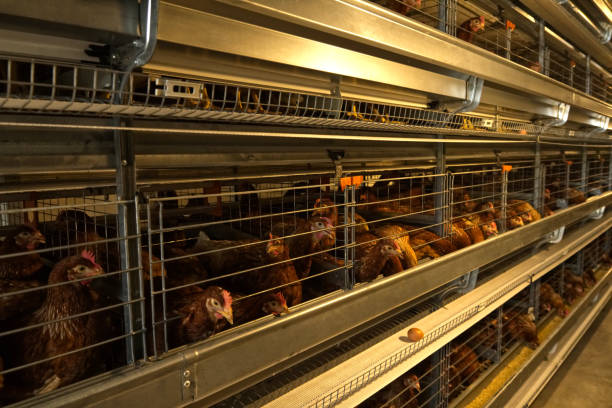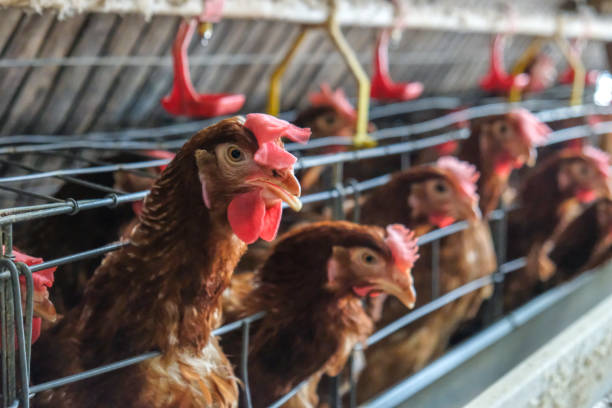Layer Chicken Cage System for 10,000 Birds – Nigeria
Layer Chicken Cage System for 10,000 Birds – Nigeria
Nigeria’s poultry industry is growing rapidly, driven by increasing demand for eggs and improved farming practices. As more farmers aim to scale up their operations, the need for efficient, high-capacity, and cost-effective layer chicken cage systems has never been greater. One of the most popular setups currently is the 10,000-bird layer chicken cage system — a solution that balances productivity, labor efficiency, and long-term profitability. In this article, we’ll explore why this system makes sense for Nigerian farmers, what makes a good layer cage setup, and how Livi Machinery can support your project from planning to full operation.
Choosing the Right Design for Maximum Efficiency
When setting up a layer chicken cage system for 10,000 birds in Nigeria, design is everything. The right layout ensures optimal space utilization, proper air circulation, ease of feeding and egg collection, and minimal stress on the birds. Most successful farms use a three-tier A-frame or four-tier ladder-style cage system. These designs maximize vertical space, allowing you to house thousands of birds without needing an excessively large building. For a 10,000-bird operation, you’ll typically need around 2,000 to 2,500 square feet of floor space, depending on bird density and local climate.
At Livi Machinery, we tailor our cage systems to Nigeria’s tropical conditions. Our cages are made from hot-dip galvanized steel, which resists rust and corrosion even in humid environments. They also come with automatic feeding, drinking, and egg collection systems — reducing labor costs and minimizing human error. Each tier is designed with easy access for cleaning and inspection, helping prevent disease outbreaks. We also include adjustable manure trays that can be removed daily or set up for automatic scraping, keeping the environment clean and hygienic.
Another key consideration is ventilation and temperature control. High temperatures can reduce laying rates and increase mortality. That’s why many Nigerian farms using our systems combine the cages with tunnel ventilation, exhaust fans, cooling pads, and roof insulation. These features maintain a stable internal climate, ensuring your hens stay productive all year round — even during the hot dry season.
Cost, Durability, and Long-Term Investment
Running a commercial egg farm in Nigeria requires careful budgeting, but it’s important not to cut corners when it comes to equipment. While some cheaper alternatives may seem appealing upfront, they often lead to higher maintenance costs, bird loss, and lower egg production over time. Our layer chicken cage systems are built to last over 15 years with minimal maintenance. The heavy-duty materials and anti-corrosion treatment mean the cages won’t degrade quickly — a critical factor in Nigeria’s sometimes harsh weather conditions.
For a 10,000-bird operation, the total investment in cages, feeders, drinkers, and egg belts typically ranges between $35,000 and $50,000, depending on customization and automation level. While this might sound significant, consider the return: at current market prices, a well-managed flock can produce over 80% hen-day production, generating hundreds of thousands of naira monthly in revenue. When paired with good management, quality feed, and biosecurity, these systems pay for themselves within 2–3 years.
We also offer flexible delivery and installation options. Whether you’re based in Lagos, Kano, Enugu, or Abuja, our team can ship the complete system and guide local technicians through setup — or send our engineers directly if needed. Plus, every system comes with a 2-year warranty and lifetime technical support, giving you peace of mind throughout your operation.
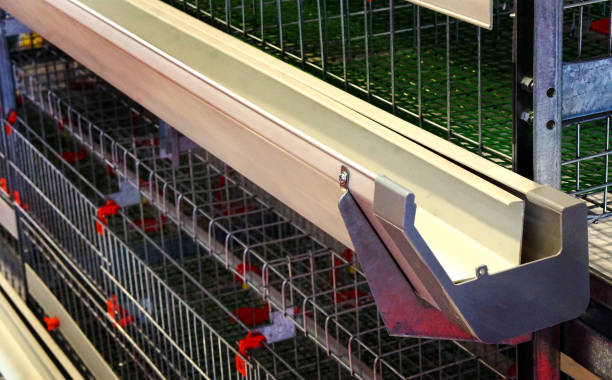
From Planning to Production: Full Support Every Step of the Way
Starting a 10,000-bird layer farm isn’t just about buying cages — it’s about creating a sustainable business. That’s why Livi Machinery provides end-to-end support. Before we build anything, we consult with you on site layout, house dimensions, power availability, and local climate so we can recommend the perfect configuration. We provide complete drawings and equipment lists, helping you secure funding or permits if necessary.
Once the order is confirmed, manufacturing takes just 25–30 days. We handle all export documentation and logistics, shipping containers directly to Nigerian ports like Apapa or Onne. Upon arrival, we assist with customs clearance and transportation to your farm. If you choose professional installation, our trained engineers will travel to your location, oversee assembly, train your staff, and make sure everything runs smoothly before departure.
But our job doesn’t end there. We stay in touch through WhatsApp, email, or phone — offering advice on flock management, troubleshooting issues, and optimizing performance. Whether you’re having trouble with water pressure in the nipple lines or want tips on improving eggshell quality, we’re here to help. Many of our Nigerian customers tell us this ongoing support is one of the biggest reasons they succeeded.
Ready to Start Your Egg Farm? Let’s Talk
If you’re planning a 10,000-bird layer chicken cage system in Nigeria, now is the perfect time to act. With rising urban populations and growing awareness of nutritional needs, the demand for fresh, locally produced eggs continues to climb. By investing in a modern, automated cage system, you position yourself at the forefront of Nigeria’s agricultural transformation.
Whether you’re expanding an existing farm or starting fresh, Livi Machinery has the experience, technology, and dedication to make your project a success. Don’t leave your operation to guesswork — partner with a company that understands both global standards and local challenges.
Leave your contact information below or send us a message today. Tell us your farm size, location, and goals, and we’ll send you a free customized quote, 3D design, and breakdown of equipment. Let’s build something lasting — together.
Frequently Asked Questions (FAQ)
What does a full 10,000-bird layer cage system include?
A complete system includes galvanized chicken cages (usually in 3 or 4 tiers), automatic feeding lines, nipple drinking systems, egg collection belts, manure removal trays, junction boxes, and detailed installation manuals. Optional add-ons include controllers, lighting systems, and environmental monitors.
How much space do I need for 10,000 layers?
You’ll need approximately 65m² to 75m² (700–800 sq ft) per 1,000 birds, so around 700–750m² (about 7,500 sq ft) total. This accounts for cages, walkways, feed storage, and worker access. Barn height should be at least 3 meters for good airflow.
Can the system work without electricity?
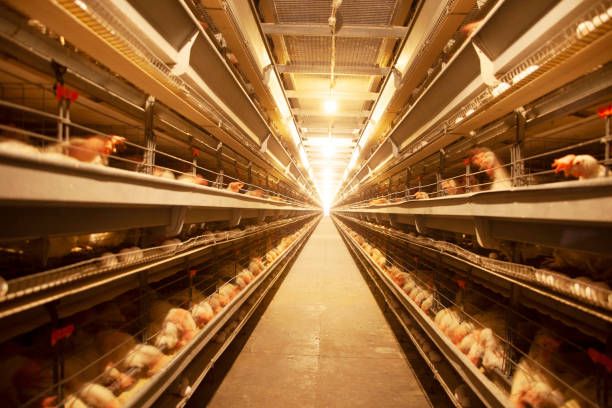
While basic cage structures don’t require power, automated features like feeders, egg belts, and ventilation do. However, we can design hybrid systems compatible with generators or solar setups, which are common in Nigerian farms with unreliable grid access.
How long does delivery take from China to Nigeria?
Shipping time from Qingdao or Shanghai to Nigerian ports usually takes 30–40 days, depending on the port and customs processing. We pack everything in sturdy containers to prevent damage during transit.
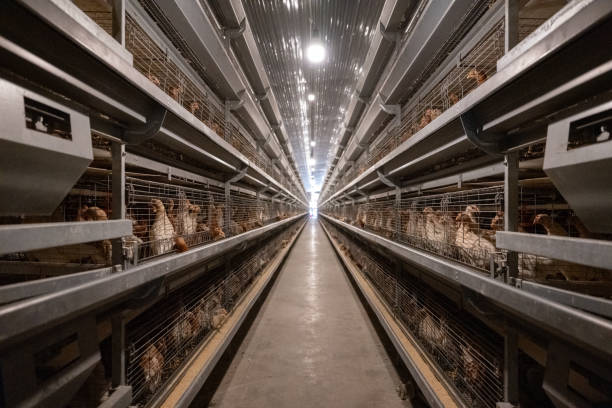
Is installation support available in Nigeria?
Yes. We offer remote guidance via video call, or we can dispatch a technician to your farm for hands-on installation and training. Travel and accommodation are covered by the customer, but we keep the cost transparent and reasonable.
What is the lifespan of the cages?
Our hot-dip galvanized cages last 15 years or more under normal conditions. Regular cleaning and dry manure management help extend their life. Even after a flock cycle, the same cages can be reused for several generations.
Do you provide training for farm workers?
Absolutely. During installation, we train your team on operating the feeding system, collecting eggs, cleaning protocols, monitoring bird health, and performing basic maintenance. We also provide user manuals in English.
Are spare parts available in Nigeria?
While we recommend keeping a small stock of critical spares (like nipples, rollers, and belt joints), we ship replacement parts globally within a week. Some components are also compatible with locally sourced items to reduce downtime.
Can the system be expanded later?
Yes, our modular design allows you to add more sections or rows as your business grows. Just let us know your long-term plans during the initial consultation so we can ensure compatibility.
How do I get a quote for my project?
Simply reach out with your barn dimensions, bird capacity, preferred automation level, and location. We’ll respond within 24 hours with a detailed proposal, including pricing, layout, and timeline.



